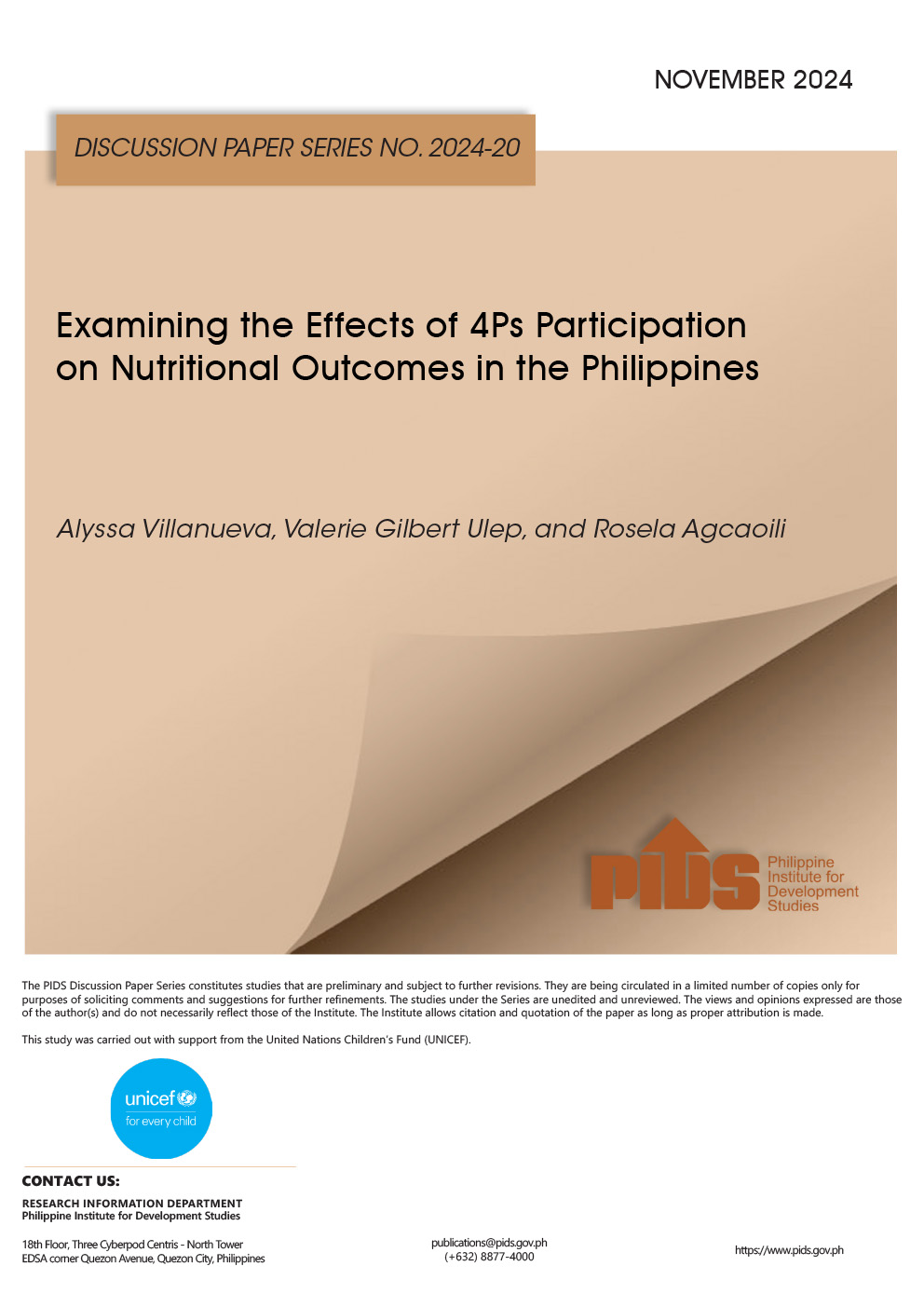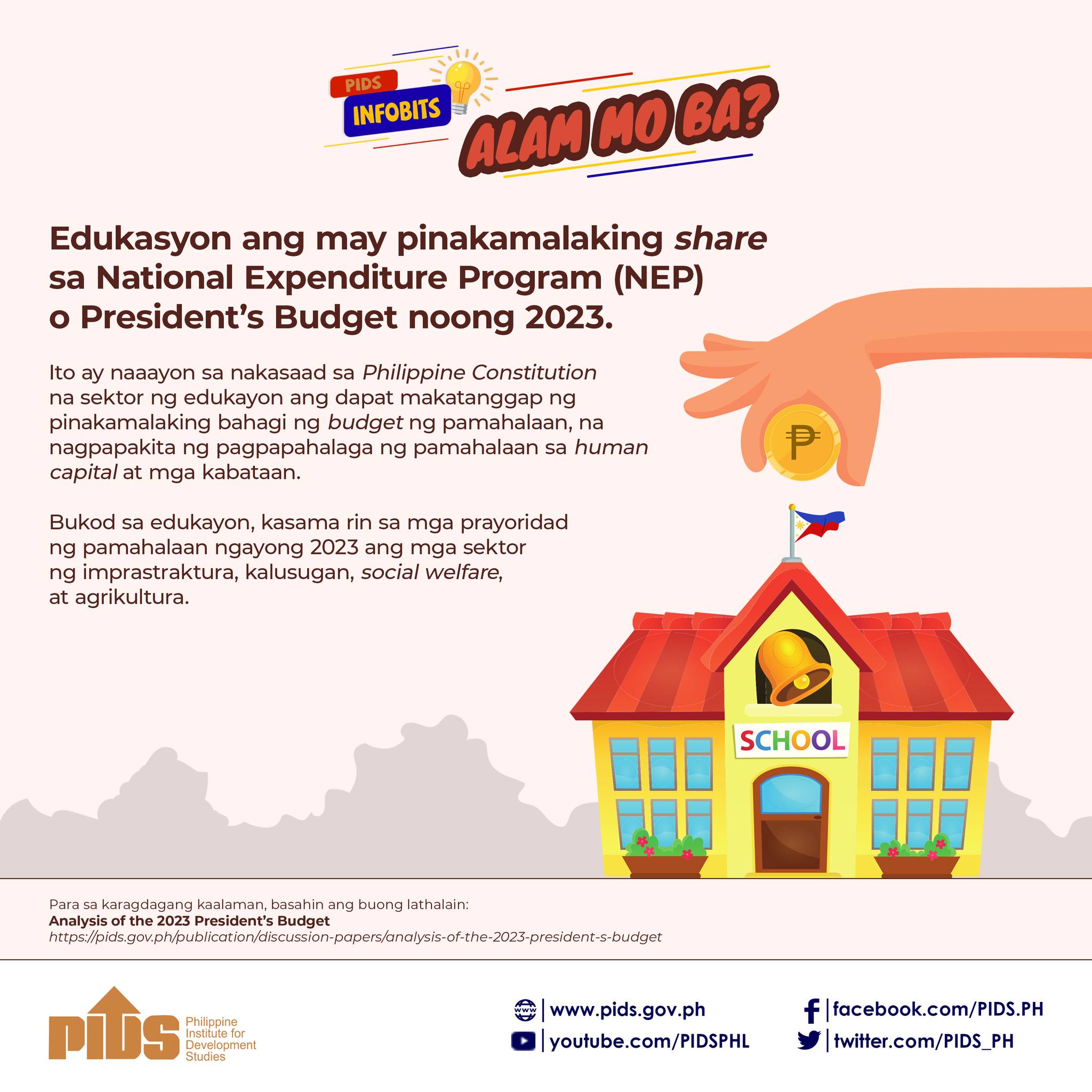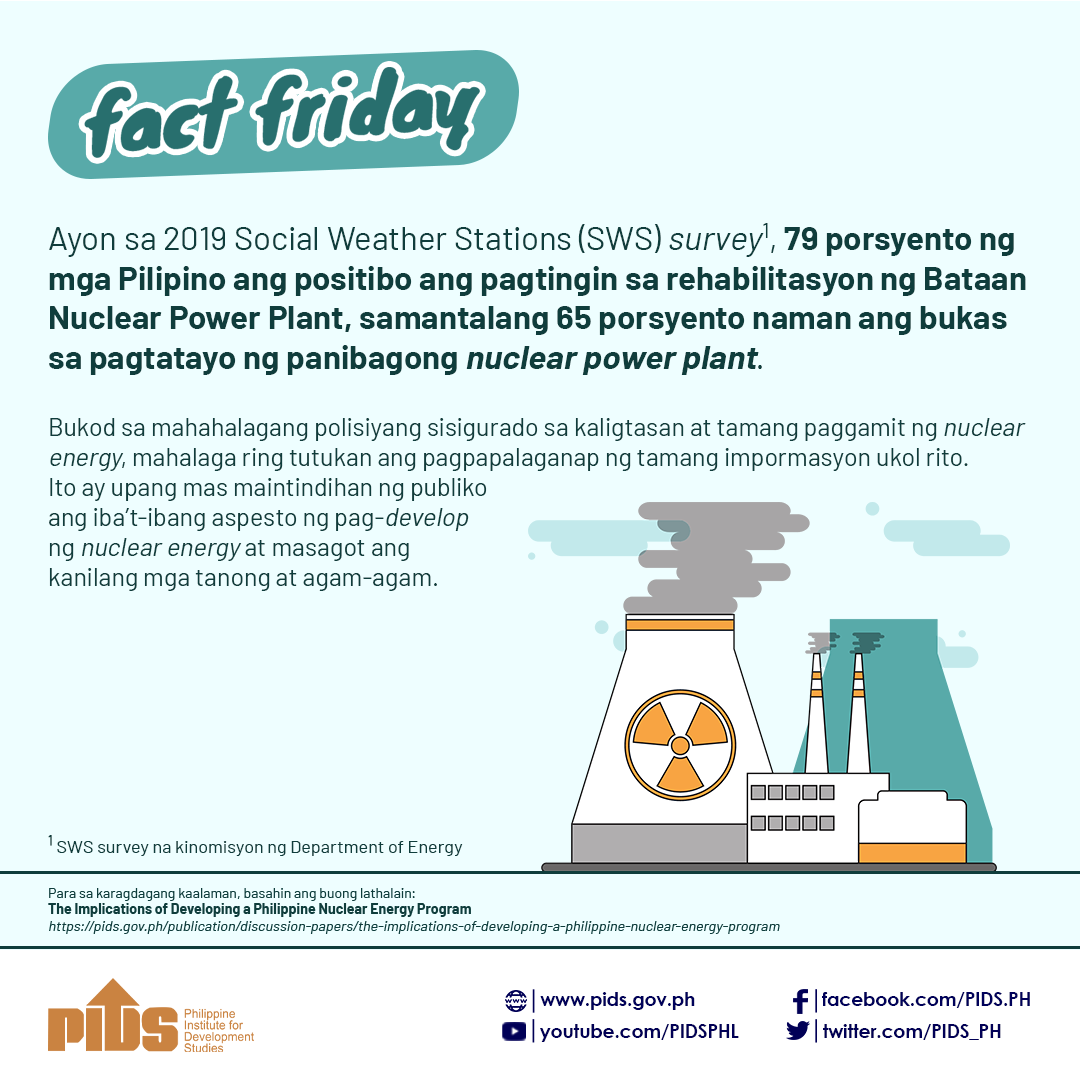QUEZON CITY, Nov. 29 -- Respondents of a study conducted by state think tank Philippine Institute for Development Studies (PIDS) have mixed opinions of the Performance-based Bonus (PBB), an incentive scheme in the public sector.
Senior Research Fellow Dr. Jose Ramon Albert said at a recent PIDS webinar that while most respondents believed that the PBB was able to meet its objectives, some agency representatives said otherwise.
Albert noted reports of the program’s unintended consequences shared by the respondents, such as “jealousy over incentives received by others”, “perception of arbitrariness in ratings”, and “tendency to increase overtime” to fulfill numerous documentary requirements instead of “putting more efforts on performing their main tasks”.
Some respondents also pointed out the increasing number of PBB requirements, which they described as becoming “more stringent”, making it more difficult for them to qualify for the PBB.
The study also revealed that some agencies have practiced “sharing the monetary incentives” to pacify employees who are not among those ranked as ‘better’ or ‘best’.
Unfair ratings have also created discord among staff in other units, Albert said.
To resolve these issues, Albert and his coauthors recommended the review of the PBB policy design by the Interagency Agency Task Force (IATF) Secretariat, the body created by Administrative Order 25 to undertake the monitoring and evaluation of government agencies’ performance.
“Many respondents would not like the PBB to be discontinued, but there is a need for some improvements on the policy design,” he said.
They still find the PBB relevant as it encourages employees and government offices to strive harder to meet their targets.
About half of the respondents from national government agencies said that the performance and productivity of the employees have improved through the PBB.
The study also mentioned that the PBB is seen by many as a solution to change the negative perception of people about the public sector.
Further, it showed that the PBB has “strengthened teamwork and cooperation” in government “where employees in delivery units or bureaus became more aware of their responsibilities and deadlines”.
The PBB is a top-up bonus given to groups and individuals who have contributed the most to the accomplishment of the department/agency/government- wide performance. It is part of the government’s Performance-Based Incentive System (PBIS) adopted in 2012 to motivate higher performance and ensure that commitments and targets are accomplished.
AO25 IATF is chaired by the Department of Budget and Management and co-chaired by the Office of the Cabinet Secretary. Other task force members include the Office of the Executive Secretary, National Economic and Development Authority, the Presidential Management Staff, and the Department of Finance. It also has a technical working group composed of various government agencies and the Development Academy of the Philippines (DAP) as the Technical Secretariat and Resource Institution. (PIDS)
Watch the video of this seminar at https://www.facebook.com/PIDS. PH/videos/2118357788298257. For more videos of PIDS events, go to https://www.pids.gov.ph/videos .
Senior Research Fellow Dr. Jose Ramon Albert said at a recent PIDS webinar that while most respondents believed that the PBB was able to meet its objectives, some agency representatives said otherwise.
Albert noted reports of the program’s unintended consequences shared by the respondents, such as “jealousy over incentives received by others”, “perception of arbitrariness in ratings”, and “tendency to increase overtime” to fulfill numerous documentary requirements instead of “putting more efforts on performing their main tasks”.
Some respondents also pointed out the increasing number of PBB requirements, which they described as becoming “more stringent”, making it more difficult for them to qualify for the PBB.
The study also revealed that some agencies have practiced “sharing the monetary incentives” to pacify employees who are not among those ranked as ‘better’ or ‘best’.
Unfair ratings have also created discord among staff in other units, Albert said.
To resolve these issues, Albert and his coauthors recommended the review of the PBB policy design by the Interagency Agency Task Force (IATF) Secretariat, the body created by Administrative Order 25 to undertake the monitoring and evaluation of government agencies’ performance.
“Many respondents would not like the PBB to be discontinued, but there is a need for some improvements on the policy design,” he said.
They still find the PBB relevant as it encourages employees and government offices to strive harder to meet their targets.
About half of the respondents from national government agencies said that the performance and productivity of the employees have improved through the PBB.
The study also mentioned that the PBB is seen by many as a solution to change the negative perception of people about the public sector.
Further, it showed that the PBB has “strengthened teamwork and cooperation” in government “where employees in delivery units or bureaus became more aware of their responsibilities and deadlines”.
The PBB is a top-up bonus given to groups and individuals who have contributed the most to the accomplishment of the department/agency/government- wide performance. It is part of the government’s Performance-Based Incentive System (PBIS) adopted in 2012 to motivate higher performance and ensure that commitments and targets are accomplished.
AO25 IATF is chaired by the Department of Budget and Management and co-chaired by the Office of the Cabinet Secretary. Other task force members include the Office of the Executive Secretary, National Economic and Development Authority, the Presidential Management Staff, and the Department of Finance. It also has a technical working group composed of various government agencies and the Development Academy of the Philippines (DAP) as the Technical Secretariat and Resource Institution. (PIDS)
Watch the video of this seminar at https://www.facebook.com/PIDS. PH/videos/2118357788298257. For more videos of PIDS events, go to https://www.pids.gov.ph/videos .











